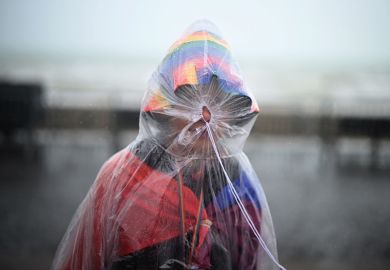A long-term decline in New Zealand’s Asia expertise, accelerated in the latest round of university course cuts, is undermining engagement with the world’s ascendant superpowers, according to academics.
Researchers warned that the slashing of language and culture programmes, in a “bums on seats” response to sustained university underfunding, was torpedoing Asia proficiency assembled over decades.
Colleagues in Australia, where low enrolments have also forced language course closures, have bemoaned the erosion of China expertise when the nation needs it most. The New Zealand situation is arguably worse because of an increasingly “insular” mindset.
“We face a very sudden and significant decrease,” said Stephen Epstein, who directs the Asian Languages and Cultures Programme at Victoria University of Wellington (VUW). “We run the danger of…negative economic consequences for the entire population.”
Duncan Campbell, an adjunct teaching and research fellow at VUW, said there had been no tertiary level Chinese history course in New Zealand this year, for the first time in four decades. Next year will bring an end to courses in classical Chinese, the archaic language used in all pre-20th century texts, denying New Zealanders the necessary “tools” for Sinological research.
“This is catastrophic, at the very moment that we’re faced with an increasingly complex trading environment,” Dr Campbell said. “We’re wandering naked into the negotiations.”
VUW proposes to reduce staffing in Asian studies and to jettison research from foreign language programmes, including Chinese and Japanese. Its vice-chancellor, Nic Smith, said that if these courses were spared, cuts would be needed elsewhere. “We can’t afford to take on all the obligations that we think are important for the country,” he said. “We have to make difficult choices.”
The University of Otago is cutting back its language courses and has “disestablished” its Asian studies majors and minors “in the face of decreasing student numbers”, said Jessica Palmer, its pro vice-chancellor for humanities. Auckland University of Technology has closed its Japanese studies programme despite deferring plans for widespread course cuts.
Academics said the moves were part of a decades-long pattern of courses being cut and retiring lecturers not being replaced, while specialist programmes in key countries and languages have given way to generalist “global studies” courses.
As long ago as 2003 a report by the New Zealand Asian Studies Society found that the field was in decline, with few specialists on south-east Asia and almost none on central or western Asia. New Zealand had only a “handful” of Asia scholars with research expertise in key fields such as economics, business and law. Dr Epstein said the situation had deteriorated since then.
Report co-author Pauline Keating, a retired lecturer in Chinese history, said the current unpopularity of Chinese language study – prompted by students’ disapproval of human rights abuses in the country – could prove short-lived. She said the complexity of diplomatic dealings with Beijing was an argument for, not against, the cultivation of China expertise.
Pacific Island studies have been insulated from university course cuts, prompting resentment among Asia and Europe specialists. Dr Campbell said it would be “politically unacceptable” for university administrators to cut programmes in Māori or Pacifica studies as New Zealand began to acknowledge the “dark parts of our past”.
But he said Asian studies played a similar role, as the country came to grips with a century of anti-Chinese legislation. Dr Epstein said that with Asian New Zealanders almost as numerous as the Māori population, Asian studies was important to the country’s social cohesion.
Register to continue
Why register?
- Registration is free and only takes a moment
- Once registered, you can read 3 articles a month
- Sign up for our newsletter
Subscribe
Or subscribe for unlimited access to:
- Unlimited access to news, views, insights & reviews
- Digital editions
- Digital access to THE’s university and college rankings analysis
Already registered or a current subscriber? Login












